Related Research Articles

Eugene Kal Siskel was an American film critic and journalist for the Chicago Tribune who co-hosted a movie review television series alongside colleague Roger Ebert.

Carnal Knowledge is a 1971 American comedy-drama film directed by Mike Nichols and written by Jules Feiffer. It stars Jack Nicholson, Candice Bergen, Art Garfunkel, and Ann-Margret, with Rita Moreno and Cynthia O'Neal.

Beyond the Valley of the Dolls is a 1970 American satirical musical melodrama film starring Dolly Read, Cynthia Myers, Marcia McBroom, Phyllis Davis, John LaZar, Michael Blodgett, Erica Gavin, and David Gurian. The film was directed by Russ Meyer and written by Roger Ebert from a story by Ebert and Meyer.
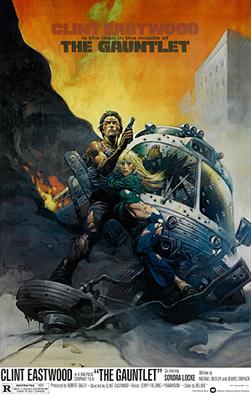
The Gauntlet is a 1977 American action thriller film directed by Clint Eastwood, who stars alongside Sondra Locke. The film's supporting cast includes Pat Hingle, William Prince, Bill McKinney, and Mara Corday. Eastwood plays a down-and-out cop who falls in love with a prostitute (Locke), to whom he is assigned to escort from Las Vegas to Phoenix for her to testify against the mob.
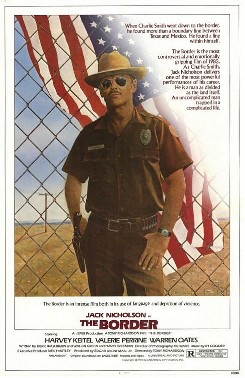
The Border is a 1982 American neo-noir dramatic crime thriller film directed by Tony Richardson and starring Jack Nicholson alongside Harvey Keitel, Valerie Perrine, Elpidia Carrillo and Warren Oates.
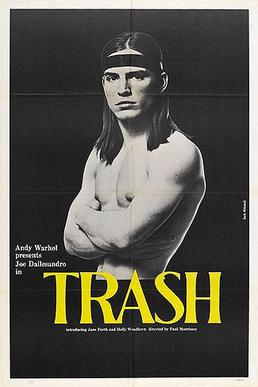
Trash is a 1970 American drama film directed by Paul Morrissey and starring Warhol superstars Joe Dallesandro, Holly Woodlawn and Jane Forth. The film features graphic scenes of intravenous drug use, sex, and frontal nudity.

Secret Honor is a 1984 American historical drama film directed by Robert Altman, written by Donald Freed and Arnold M. Stone, and starring Philip Baker Hall. It is based on the play, and follows Richard Nixon as a fictional account attempting to gain insight. It was filmed at the University of Michigan, in the Martha Cook Building's sitting room.

Sheba, Baby is a 1975 American blaxploitation action film directed by William Girdler and starring Pam Grier and Austin Stoker.

The Fury is a 1978 American supernatural horror thriller film directed by Brian De Palma and starring Kirk Douglas, John Cassavetes, Amy Irving, Carrie Snodgress, Charles Durning, and Andrew Stevens. The screenplay by John Farris was based on his 1976 novel of the same name.
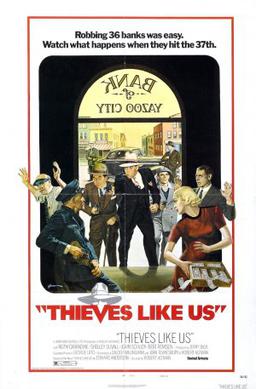
Thieves Like Us is a 1974 American crime film, set in the United States of the 1930s. It was directed by Robert Altman and starred Keith Carradine and Shelley Duvall. The film was based on the novel of the same name by Edward Anderson, which also supplied source material for the 1948 film They Live by Night, directed by Nicholas Ray. The Altman film sticks much closer to the book. The supporting cast includes Louise Fletcher and Tom Skerritt.

Mad Dog Time is a 1996 American ensemble crime comedy film written and directed by Larry Bishop and starring Ellen Barkin, Gabriel Byrne, Richard Dreyfuss, Jeff Goldblum and Diane Lane. The film is notable for the various cameo appearances, including the first film appearance by Christopher Jones in over a quarter-century.
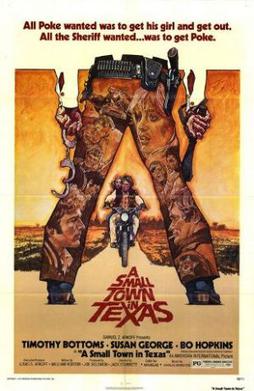
A Small Town in Texas is a 1976 action film directed by Jack Starrett and starring Bo Hopkins, Susan George, and Timothy Bottoms. It was filmed in Lockhart, Texas.
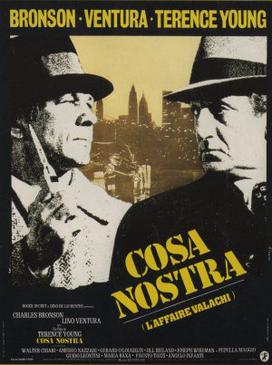
The Valachi Papers is a 1972 neo noir crime film directed by Terence Young. It is an adaptation of the 1968 non-fiction book of the same name by Peter Maas, with a screenplay by Stephen Geller. It tells the story of Joseph Valachi, a Mafia informant in the early 1960s who was the first ever government witness coming from the American Mafia itself. The film stars Charles Bronson as Valachi and Lino Ventura as crime boss Vito Genovese, with Jill Ireland, Walter Chiari, Joseph Wiseman, Gerald S. O'Loughlin, Guido Leontini, Amedeo Nazzari, Fausto Tozzi, Pupella Maggio, and Angelo Infanti.
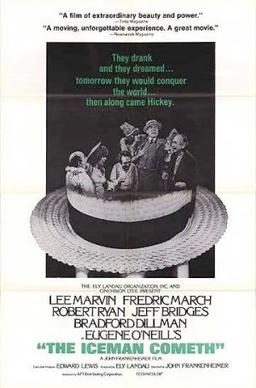
The Iceman Cometh is a 1973 American drama film directed by John Frankenheimer. The screenplay, written by Thomas Quinn Curtiss, is based on Eugene O'Neill's 1946 play of the same name. The film was produced by Ely Landau for the American Film Theatre, which from 1973 to 1975 presented thirteen film adaptations of noted plays.
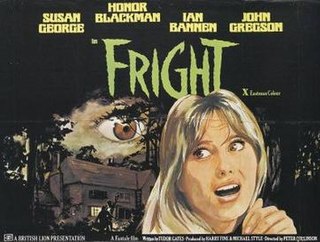
Fright is a 1971 British thriller film starring Susan George, Ian Bannen, Honor Blackman, and John Gregson. The film follows a babysitter who is terrorized one evening by her employer's deranged ex-husband. Its original working titles were The Baby Minder and Girl in the Dark before it was titled Fright. It is said by many horror fans and commentators to be one of or even the first film in which an isolated babysitter is stalked by an unrelenting and psychopathic antagonist, rendering it the forerunner of dozens of movies to use similar premises over the following decades.

Portnoy's Complaint is a 1972 American comedy film written and directed by Ernest Lehman. His screenplay is based on the bestselling 1969 novel of the same name by Philip Roth. It was Lehman's first and only directorial effort. The film starred Richard Benjamin, Karen Black and Lee Grant, with Jack Somack, Jeannie Berlin and Jill Clayburgh in supporting roles.
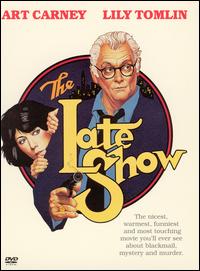
The Late Show is a 1977 American neo-noir mystery film written and directed by Robert Benton and produced by Robert Altman. It stars Art Carney, Lily Tomlin, Bill Macy, Eugene Roche, and Joanna Cassidy.

Fuzz is a 1972 American action comedy film directed by Richard A. Colla and starring Burt Reynolds, Yul Brynner, Raquel Welch, Tom Skerritt, and Jack Weston.

Mr. Ricco is a 1975 crime drama film directed by Paul Bogart and starring Dean Martin in his last leading film role, along with Eugene Roche, Denise Nicholas and Cindy Williams.
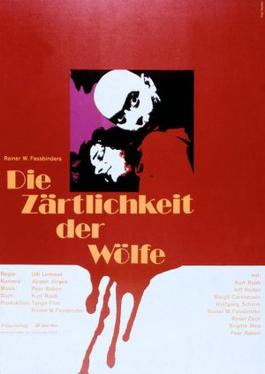
The Tenderness of Wolves is a 1973 West German crime drama film directed by Ulli Lommel. The story is based on the crimes of German serial killer and cannibal Fritz Haarmann. It was written by Kurt Raab, who also stars in the film, and produced by Rainer Werner Fassbinder. It was entered into the 23rd Berlin International Film Festival.
References
- ↑ "Crime and Passion - Details". AFI Catalog of Feature Films . American Film Institute . Retrieved December 18, 2018.
- 1 2 Ebert, Roger (May 4, 1976). Crime and Passion. RogerEbert.com.
- ↑ Canby, Vincent (April 22, 1976). "Film: Crime and Passion". The New York Times . 37.
- ↑ Siskel, Gene (May 5, 1976). "Six films with no Oscar hopes—or much of anything else". Chicago Tribune . Section 4, p. 4.
- ↑ Murphy, Arthur D. (February 25, 1976). "Crime And Passion". Variety . 22.